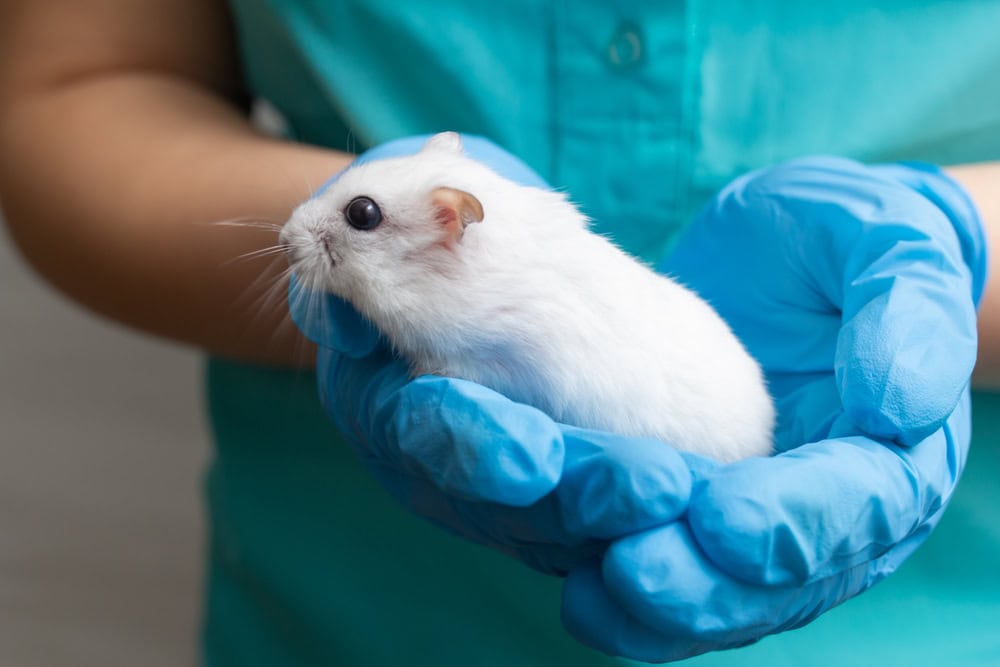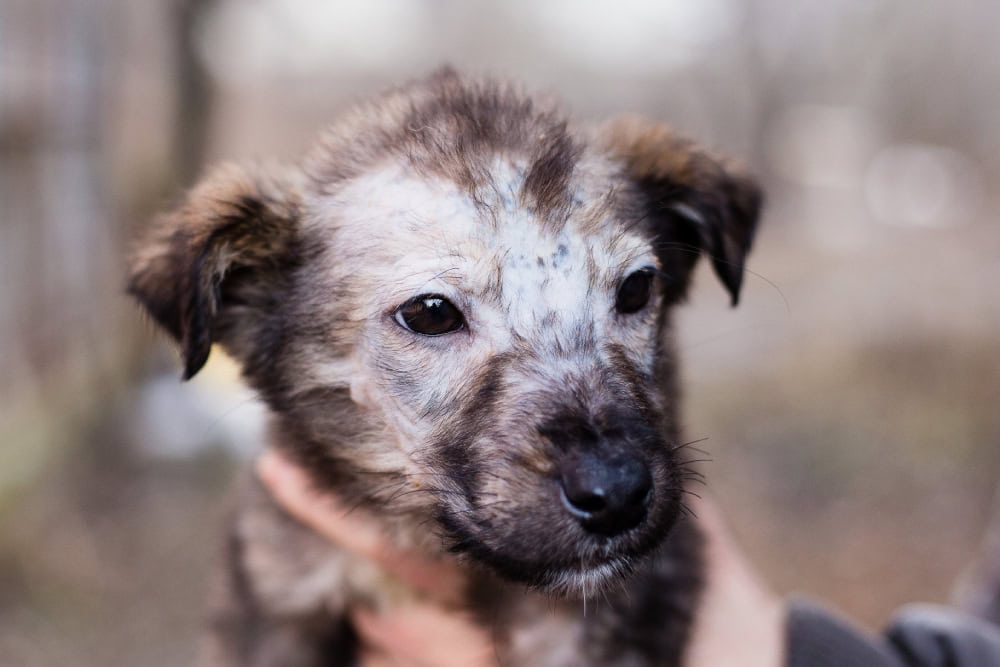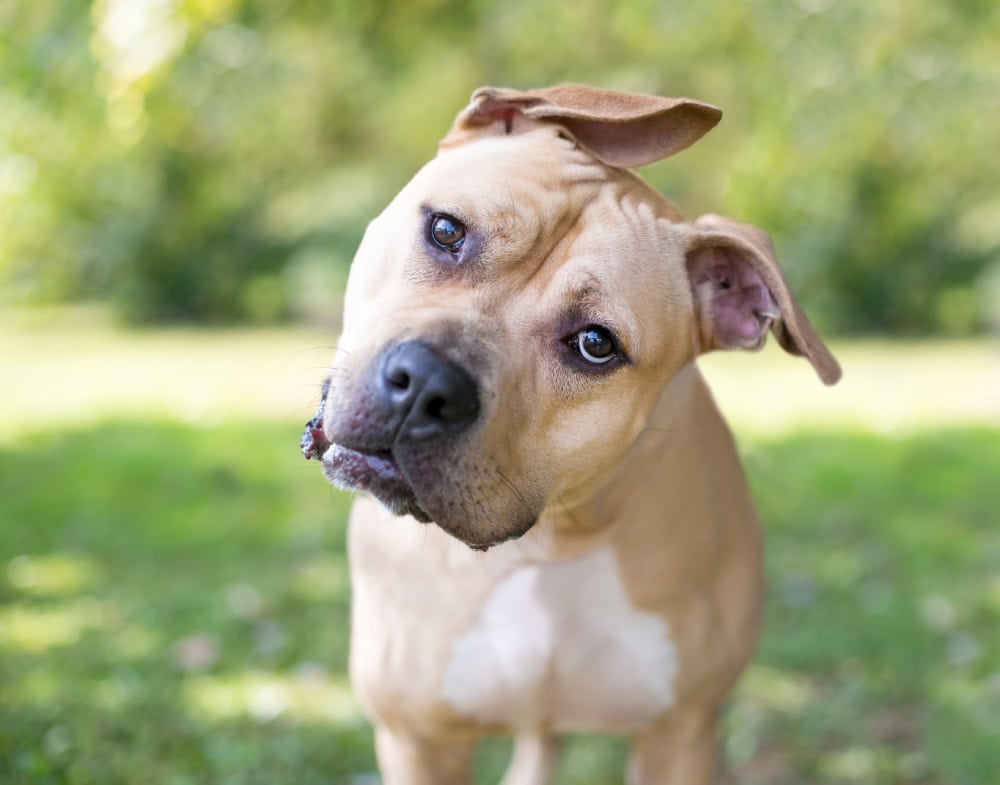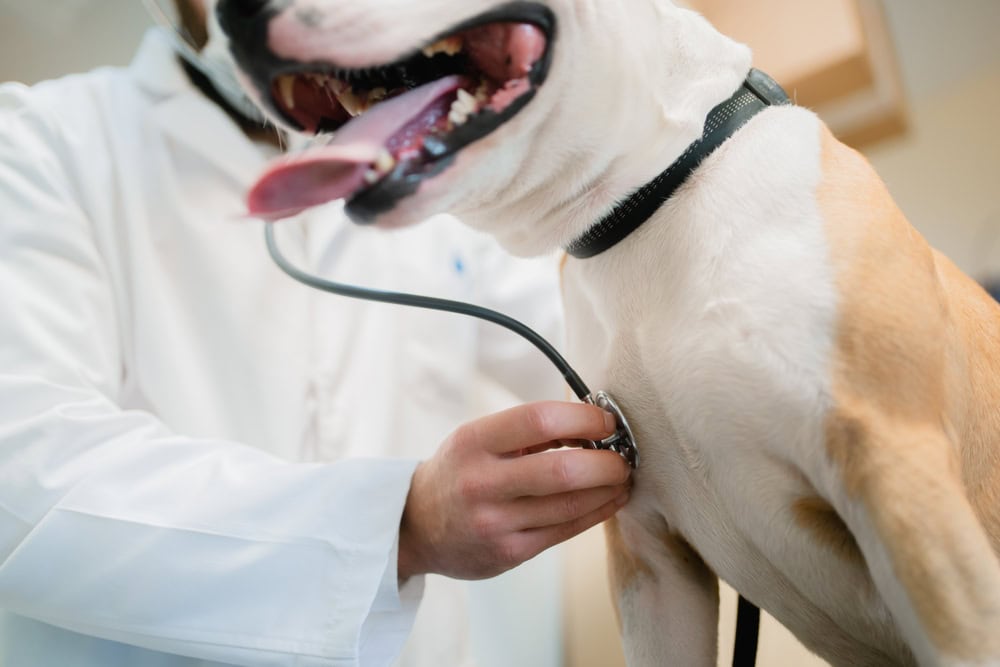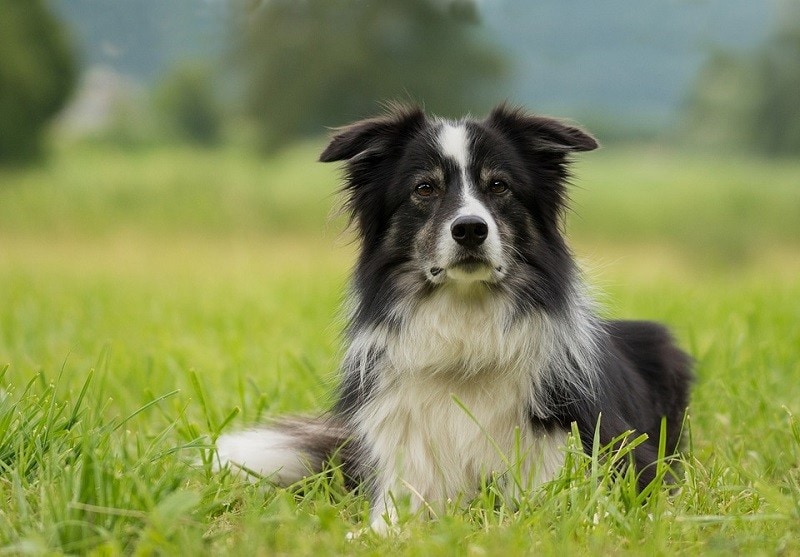
[jump-links title=”Click to Skip Ahead”]
Border Collie Food Allergies
What to Do If a Food Allergy Is Suspected
[/jump-links]
Border Collies are sweet, intelligent dogs that can get along well in many types of family and household situations. These dogs tend to take to obedience training well and are exceptionally loyal to their human companions. They love to go outdoors for exercise and adventures, but they appreciate the opportunity to snuggle inside in front of the fire too. While these are typically healthy dogs, food allergies could affect them at some point in their life. It is important to note that food allergies and intolerances are not common in dogs in general. Border Collies are not more prone to food allergies than other breeds but here are six food allergies that Border Collies could suffer from.

The 6 Border Collie Food Allergies
1. Eggs

For most dogs, eggs can be a great source of nutrition. Unfortunately, Border Collies can have egg allergies and could suffer from side effects when they eat eggs. This is fortunately not the case for all Border Collies. It is thought that if a parent of your pup suffers from a food allergy it can increase the risk that your dog will have food allergies too. Others might develop an allergy through repeated exposure to eggs in food over time. Whatever the case, once an egg allergy has been detected, keep your Border Collie away from eggs and egg products, even commercial food that includes eggs in the ingredients list.
[su_box title=”Signs” box_color=”#BE383E” radius=”0″][su_list icon=”icon: warning” icon_color=”#BE383E”]
- Diarrhea
- Hives
- Difficulty breathing
- Coughing
- Lethargy
[/su_list][/su_box]
It can be tough to determine whether your dog has an egg allergy unless you know for sure they are not allergic to anything else that they eat with the eggs. Even then, work with your veterinarian to verify whether your dog really does have an egg allergy.
2. Dairy

Many dogs, including Border Collies, are intolerant to lactose, a sugar found in dairy products like milk and cheese. Therefore, keep foods that contain dairy away from your dog whenever possible. Never give them a bowl of milk unless it’s a lactose-free nutritive support and is designed for dogs.
[su_box title=”Signs” box_color=”#BE383E” radius=”0″][su_list icon=”icon: warning” icon_color=”#BE383E”]
- Loose stools
- Diarrhea
- Gas
- Vomiting
- Abdominal discomfort
[/su_list][/su_box]
3. Wheat
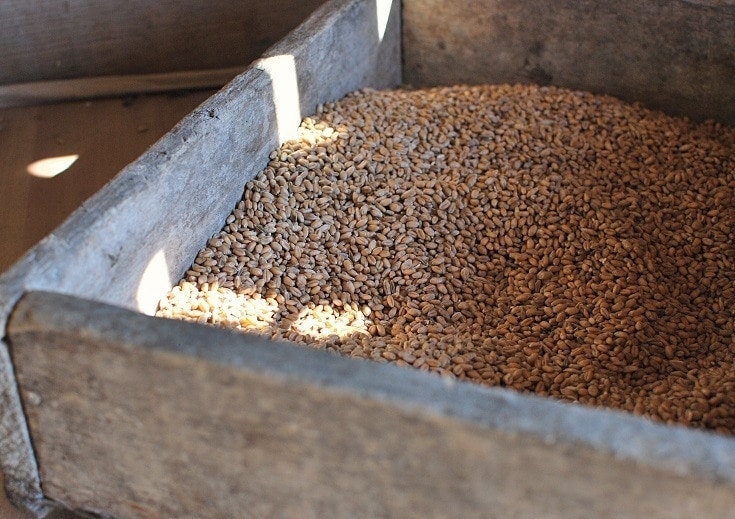
While wheat can be a healthy addition to the typical dog’s diet, it can be a source of discomfort for Border Collies with wheat allergies. Alternative carbohydrate sources, such as brown rice can be incorporated into the diet instead.
[su_box title=”Signs” box_color=”#BE383E” radius=”0″][su_list icon=”icon: warning” icon_color=”#BE383E”]
- Licking paws
- Itchy skin
- Head shaking
- Gas
- Vomiting
- Diarrhea
[/su_list][/su_box]
4. Soy

Although soy protein is included in many dog food brands, some Border Collies may be allergic to it. It’s unfortunate because soy is an excellent source of protein and is generally inexpensive. However, if an allergy is present, your Border Collie may end up dealing with uncomfortable side effects that inhibit their quality of life. If your dog is allergic to soy, carefully read the ingredients on any food or treat package before buying it, as soy is present in a surprisingly high number of food products.
[su_box title=”Signs” box_color=”#BE383E” radius=”0″][su_list icon=”icon: warning” icon_color=”#BE383E”]
- Diarrhea
- Bloating
- Itchy skin
- A change in bathroom habits
- A lack of interest in daily activities
[/su_list][/su_box]
5. Beef
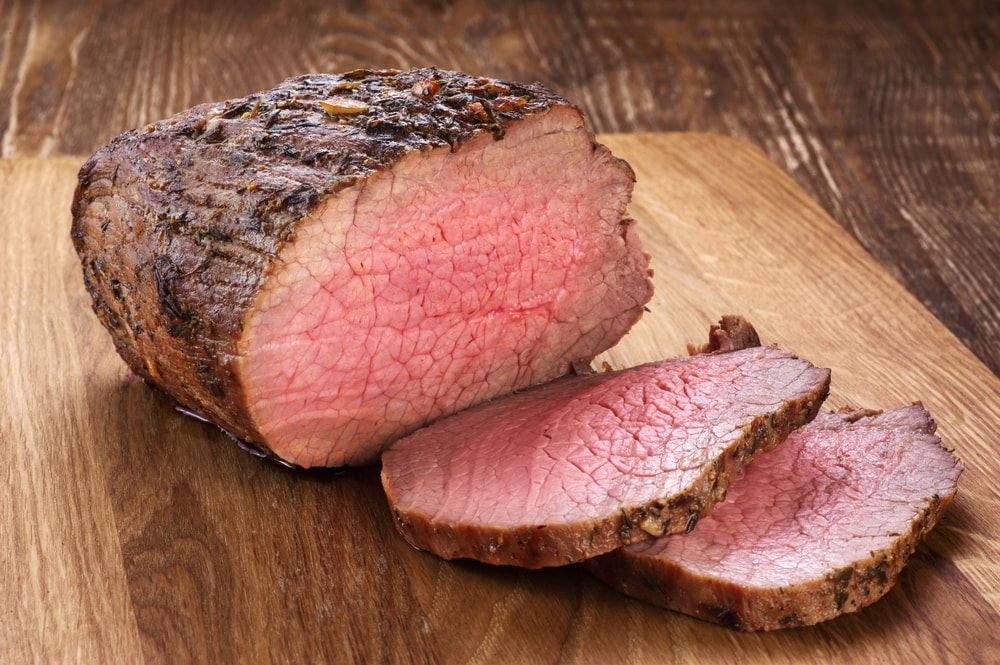
Beef is a common culprit of allergies among dogs of all breeds, shapes, and sizes. It is a good source of nutrition for dogs that can handle it, but when fed consistently over time, allergies can develop in certain dogs. It’s best to vary your Border Collie’s diet as time goes on to avoid overexposure to beef products.
[su_box title=”Signs” box_color=”#BE383E” radius=”0″][su_list icon=”icon: warning” icon_color=”#BE383E”]
- Chronic diarrhea
- Balding spots throughout the coat
- Inflamed paws
- Hives
[/su_list][/su_box]
6. Chicken
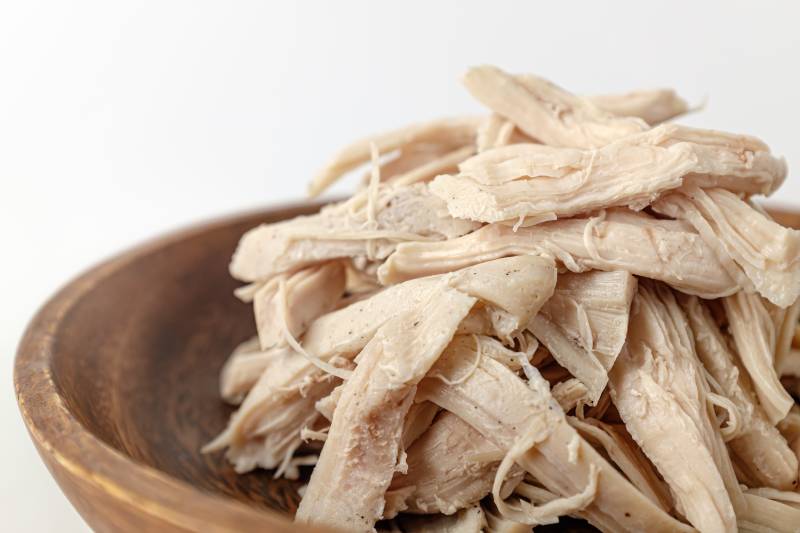
Just like with beef, a Border Collie may develop an allergy to chicken at some point in their life. The signs are similar to those of other types of allergies and even problems such as intestinal parasites, so it is imperative to properly diagnose the problem rather than just assume that a chicken allergy is a culprit. The best way to avoid allergic reactions to chicken is the same way to avoid beef allergy reactions: Maintain a varied diet and choose other types of protein occasionally.
[su_box title=”Signs” box_color=”#BE383E” radius=”0″][su_list icon=”icon: warning” icon_color=”#BE383E”]
- Skin rashes
- Coat thinning
- Coughing
- Diarrhea
- Vomiting
[/su_list][/su_box]

What to Do If a Food Allergy Is Suspected
If you suspect that your Border Collie has a food allergy, contact your veterinarian right away for guidance. They may advise you to start a food elimination diet to determine whether a food allergy is really at play and if so, what food is likely the culprit for the allergic reactions. These diets must be strictly followed with no lapses for a period of up to 3 months.
Your veterinarian may also want to do blood tests to determine whether your dog is allergic to a specific food. Giving your dog a hypoallergenic diet for a couple of weeks and then adding suspected allergen foods to the diet may also help determine exactly what your dog is and isn’t allergic to. We recommend following your veterinarian’s advice rather than taking steps to diagnose food allergies on your own, though.

In Summary
With knowledge about common food allergies that Border Collies can have, and an idea of the signs of an allergic reaction or intolerance to a food, you will know how to work with your veterinarian and learn the specifics of your pet’s food allergies once and for all.
[su_accordion class=””] [su_spoiler title=”Sources” open=”no” style=”default” icon=”plus” anchor=”” anchor_in_url=”no” class=””]
- American Kennel Club: Can Dogs Eat Eggs?
- Johns Hopkins Medicine: Lactose Intolerance
- https://wildearth.com/blogs/the-wild-times/the-truth-about-meat-allergies-for-dogs
- https://autumntrailsvet.com/food-allergens-for-dogs/
[/su_spoiler] [/su_accordion]
Featured Image Credit: 4924546, Pixabay













